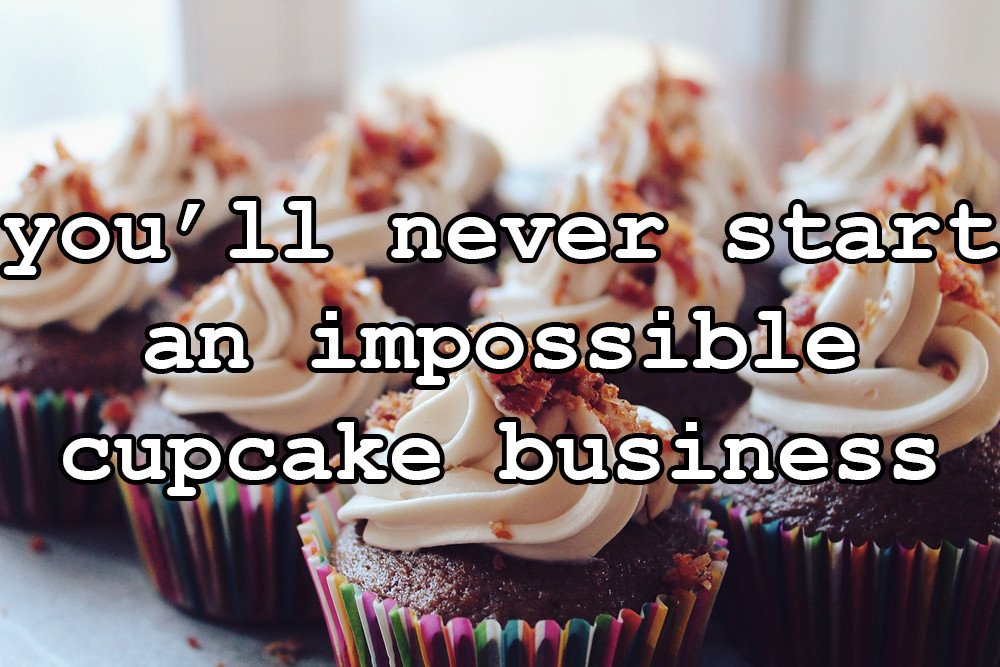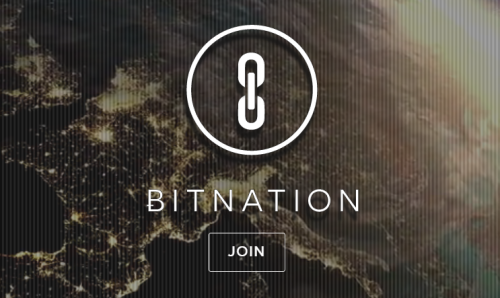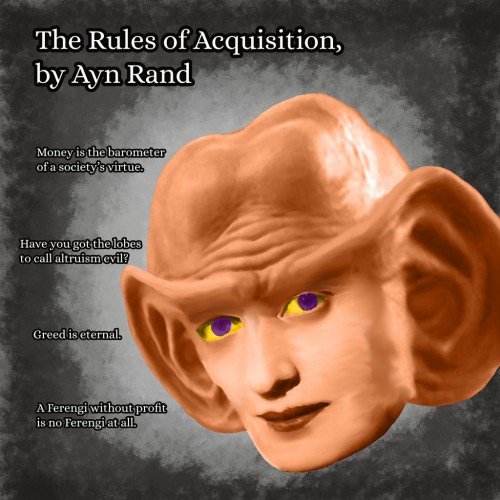
A conversation
Anarchist: I'm going to start a bakery.
Statist: Oh yeah? How are you going to do that?
A: I'll rent a commercial property, put some ovens in it, hire some bakers...
S: Where are you going to find a property? In this utopian vision of yours, you think a building is just going to sprout up out of the ground?
A: Actually, there are already a few in my area that I've looked at. Some have been there for a while, maybe 20 years.
S: Oh yeah? Who built them?
A: I don't know... A contractor I suppose. But they're there. I can show you some pictures if you like.
S: Well, I'd have to see it in person to believe it. Where will you find the ovens?
A: I'll buy them - here's the pamphlet from LEWCO.
S: Yeah? How are you going to get the ovens delivered? By teleportation?
A: They'll use trucks, I imagine.
S: Where will they get the trucks?
A: Auto manufacturers... General Motors.
S: Where will they get the oil?
A: Shell, BP... there are a lot of petrol stations around.
S: And where will they get it?
A: Oil rigs off the coast of Canada perhaps.
S: Oh yeah, and I suppose they're going to transport it by truck too - but they can't, because they need oil to move the trucks in the first place. Where are they going to refine it? And using what process?
A: I don't know, personally. I'm not in that business of oil. I just want to run the bakery.
S: Aha! So you admit you don't know how your business is going to function, how you're going to get the resources to run it. If you're proposing this new system of a bakery, and you don't even know how something so basic as the refinement of oil, how do you expect investors to believe that this is anything more than a pipe dream? Just face it - the whole thing is ridiculous. Obviously if you want to propose a business model, it's your responsibility to know exactly how it will work - otherwise, how is anyone going to accept it?
How do things work in a free society? How do they work at all?
This is how some people behave when confronted with the idea of a free, stateless society - the idea that law, arbitration and public utilities will not be provided by a state - putting the complete burden of demonstrating how everything is going to work on the person proposing the idea. The problem is, they've never given a thought to how most of the systems around them work, and they haven't noticed that 99% of them work so well that they never have to think about it.
Those things already exist
Many people might come back with the argument that things like bakeries and oil refineries already exist, and so we don't need to worry about how they will be operated. Actually, many systems which can be used in law and other public services already exist, such as Bitnation, private arbitration, private roads - even private police.
If the USSR had declared that they were going to de-nationalise their oil industry, nobody would have freaked out, paralysed with fear that oil refineries are so complex, that they cannot possibly be managed by anybody other than government. Why would it be the case with police, courts and roads? Are those things so sacred, so holy, that they can only be performed by an ordained minister of the state? What could possibly be so special about roads?
A market for violence, and a market for peace
The argument that Ayn Rand makes is that the state's only function is to provide violence, and obviously competition in violence would be awful. The problem with this argument is, the reason people desire a state (ideally) is not to provide violence, but to maintain peace.
It's very rare to meet someone who wants violence for the sake of violence - even someone who is very pro-war usually takes that position because they care about the protection of themselves and their loved ones, and even someone who calls for the imprisonment of potheads, only does it because they believe it makes society safer and prevents the potheads from "harming" themselves. They call for the service of the state, because they want peace.
Imagine if you had twenty firms in your neighbourhood, competing to make it peaceful. Would it be more peaceful, or less peaceful than if you had one firm, with a monopoly? Why?
Conclusion
Unless it's our business, we generally don't need to know exactly how something functions, for it to function. If there is a demand for something, such as peace, then people can figure out how to provide it. It won't always be easy, and there will be challenges along the way, but the value of a peaceful, civilised society based on mutual respect is worth more than any number of years you can name, or any amount of effort you can think of. We can learn to live together.
About me
My name is Kurt Robinson. I grew up in Australia, but now I live in Guadalajara, Jalisco. I write interesting things about voluntaryism, futurism, science fiction, travelling Latin America, and psychedelics. Remember to press follow so you can stay up to date with all the cool shit I post, and follow our podcast where we talk about crazy ideas for open-minded people, here: @paradise-paradox, and like us on Facebook here - The Paradise Paradox
Some other cool posts
Here are some other posts of mine to check out:
Liberty in a nutshell: 3 quick arguments to make you think about smashing the state
Freedom trumps fear: Everything you do is an act of liberty
Automation: An age of unseen prosperity
Choose Liberty, or Choose Domination



